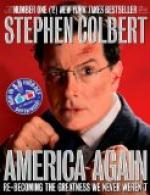It was a most eloquent grinning, making all spoken apology or explanation unnecessary; and by the time it had faded away we thoroughly understood each other, being drawn together by a mutual love of the ridiculous. Only a mutual love of the ridiculous, yet not so slender a basis for a lifelong friendship as appears, and by no means an uncommon one “out bush.”
“Does the station pay for the telegrams, or the loser?” the landlord asked in an aside, as we went in to supper and after supper the preparations began for the morrow’s start.
The Sanguine Scot, anxious to make amends for the telegrams, was full of suggestions for smoothing out the difficulties of the road. Like many men of his type, whatever he did he did it with all his heart and soul—hating, loving, avenging, or forgiving with equal energy; and he now applied himself to helping the Maluka “make things easy for her,” as zealously as he had striven to “block her somehow.”
Sorting out pack-bags, he put one aside, with a “We’ll have to spare that for her duds. It won’t do for her to be short. She’ll have enough to put up with, without that.” But when I thanked him, and said I could manage nicely with only one, as I would not need much on the road, he and the Maluka sat down and stared at each other in dismay. “That’s for everything you’ll need till the waggons come,” they explained; “your road kit goes in your swag.”
The waggons went “inside” once a year—“after the Wet,” and would arrive at the homestead early in June. As it was then only the middle of January, I too sat down, and stared in dismay from the solitary pack-bag to the great, heaped-up pile that had been sorted out as indispensable. “You’ll have to cull your herd a bit, that’s all,” Mac said; and needlework was pointed out as a luxury. Then books were “cut out,” after that the house linen was looked to, and as I hesitated over the number of pillow-cases we could manage with, Mac cried triumphantly: “You won’t need these anyway, for there’s no pillows.”
The Maluka thought he had prepared me for everything in the way of roughness; but in a flash we knew that I had yet to learn what a bushman means by rough.
As the pillow-cases fell to the ground, Mac was at a loss to account for my consternation. “What’s gone wrong?” he exclaimed in concern. Mac was often an unconscious humorist.
But the Maluka came with his ever-ready sympathy. “Poor little coon,” he said gently, “there’s little else but chivalry and a bite of tucker for a woman out bush.”
Then a light broke in on Mac. “Is it only the pillows?” he said. “I thought something had gone wrong.” Then his eyes began to twinkle. “There’s stacks of pillows in Darwin,” he said meaningly.
It was exactly the moral fillip needed, and in another minute we were cheerfully “culling our herd” again.
Exposed to Mac’s scorn, the simplest comforts became foolish luxuries. “A couple of changes of everything is stacks,” he said encouragingly, clearing a space for packing. “There’s heaps of soap and water at the station, and things dry here before you can waltz round twice.”




